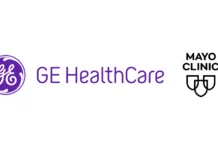The first few years of a child’s life are filled with wonder, growth, and countless milestones. From their first smile to their first steps, these moments mark crucial stages in infant development. While much of this growth happens naturally, regular primary care visits play a vital role in ensuring that infants thrive. These visits provide parents with guidance, allow healthcare providers to monitor progress, and serve as a safety net for identifying potential issues early. In this article, we’ll explore how consistent primary care visits support infant development and why they are essential for a child’s well-being.
Key Takeaways:
- Regular check-ups ensure that an infant’s physical growth and developmental milestones are on track, allowing early intervention if needed.
- Timely vaccinations during primary care visits protect infants from preventable diseases and contribute to herd immunity.
- Pediatricians offer valuable advice on nutrition, sleep routines, and safety, empowering parents to create a nurturing environment.
- Consistent care in infancy helps detect potential health issues early, laying the groundwork for a healthy future.
What Is Infant Development?
Infant development refers to the physical, cognitive, emotional, and social growth that occurs during a baby’s first few years. These formative years lay the foundation for their overall health and ability to learn, communicate, and interact with others. From the moment they are born, infants undergo rapid changes—their brains develop connections at an astonishing rate, their muscles grow stronger, and their senses become more attuned to the world around them.
During this critical period, regular monitoring becomes key. Healthcare providers use these visits to track growth and address any concerns that may arise, ensuring infants reach their full potential.
The Crucial Role of Primary Care in Infant Development
The early years of a child’s life are critical for their physical, cognitive, and emotional development. Primary care visits play a pivotal role during this formative period, acting as a cornerstone of infant health and well-being. These routine check-ups go beyond mere physical examinations—they provide a holistic view of an infant’s growth and development while offering parents essential guidance and support. Through regular monitoring, early intervention, immunizations, and tailored advice, primary care fosters a strong foundation for lifelong health, ensuring that each child gets the best possible start in life.
1. Monitoring Physical Growth and Health
Primary care visits are fundamental to ensuring the health and well-being of infants, serving as critical checkpoints in their development. These routine appointments allow pediatricians to monitor an infant’s overall health and identify potential concerns early on.
By regularly assessing key indicators such as weight, height, and head circumference, healthcare providers can ensure that infants are growing at an appropriate pace. These measurements offer insights into the baby’s physical development and provide an opportunity to address any issues, such as growth delays or signs of nutritional deficiencies before they become significant problems.
2. Assessing Developmental Milestones
Beyond physical assessments, primary care visits enable pediatricians to evaluate developmental milestones, including motor skills, cognitive abilities, and language acquisition. Through observations and discussions with parents, healthcare providers can track progress in areas like sitting up, crawling, and responding to sounds or words.
Early identification of delays in these areas allows for timely interventions, which can significantly improve outcomes. These assessments not only help monitor the child’s development but also provide reassurance to parents and caregivers, fostering confidence in their child’s progress.
3. Administering Immunizations for Protection
Immunizations are another vital aspect of primary care during infancy. Infant vaccinations Rexburg are specifically tailored to ensure timely protection against these illnesses, providing peace of mind to parents. In addition to protecting individual children, these efforts contribute to community-wide herd immunity, reducing the spread of preventable diseases and protecting vulnerable populations.
4. Providing Guidance for Holistic Care
Primary care visits also serve as a trusted platform for guidance on essential aspects of infant care. Pediatricians offer advice on nutrition, including breastfeeding or formula feeding, the introduction of solid foods, and maintaining a balanced diet.
Sleep routines, safe sleep practices, and tips for creating a nurturing environment are often discussed, along with strategies for ensuring the infant’s safety at home and on the go. These visits foster a collaborative relationship between parents and healthcare providers, empowering families with the knowledge and resources they need to give their children the best start in life.
Primary care visits are much more than routine appointments; they are a vital partnership between parents and healthcare providers aimed at nurturing the health and development of infants. Checkups address physical growth, track developmental milestones, administer immunizations, and provide expert advice, empowering families to navigate the complexities of early childhood with confidence. Investing in comprehensive primary care during infancy lays the groundwork for a healthier, brighter future, ensuring that every child has the opportunity to thrive.
5 Ways Regular Primary Care Visits Support Infant Development
Regular primary care visits are essential for monitoring and supporting the overall development of infants. These visits serve as a cornerstone for ensuring that infants grow and thrive physically, cognitively, and emotionally. Beyond just addressing immediate health concerns, primary care visits provide an opportunity for early interventions, expert guidance, and reassurance for parents navigating the early stages of their child’s life. Here’s how regular check-ups contribute to healthy infant development.
1. Tracking Physical Growth
Infants grow quickly, and keeping track of their physical development is critical. During primary care visits, pediatricians use growth charts to measure weight, height, and head circumference, comparing them to standard benchmarks.
For instance, if a baby’s weight gain slows down unexpectedly, it could signal underlying issues like feeding difficulties or illness. Regular visits ensure that such concerns are detected early and addressed promptly.
2. Early Detection of Developmental Delays
Each infant develops at their own pace, but certain milestones—like sitting up, crawling, and babbling—are expected within specific timeframes. Primary care providers assess these milestones during check-ups to identify any delays or abnormalities. If a delay is noticed, early intervention programs can be initiated. For example, speech therapy for language delays or physical therapy for motor skill challenges can make a significant difference in a child’s development trajectory.
3. Building a Vaccination Schedule
Immunizations protect infants from preventable diseases. Primary care visits help parents stay on track with their baby’s vaccination schedule, ensuring timely protection against illnesses like measles, mumps, and whooping cough.
These vaccines not only safeguard individual children but also contribute to herd immunity, protecting the community at large.
4. Guidance on Nutrition and Feeding
Nutrition plays a pivotal role in an infant’s growth and brain development. Pediatricians provide tailored advice on breastfeeding, formula feeding, and the introduction of solid foods. For instance, they might recommend iron-rich foods to prevent anemia or suggest specific strategies for picky eaters. This guidance ensures that babies receive the nutrients they need to thrive.
5. Supporting Parental Mental Health
The well-being of parents directly impacts the well-being of their child. Primary care visits often include screenings for postnatal depression or parental stress, offering resources or referrals when needed. When parents feel supported, they are better equipped to care for their infants, creating a nurturing environment that fosters healthy development.
Primary care visits are much more than routine check-ups—they are vital touchpoints that safeguard an infant’s growth and development. From tracking physical milestones and ensuring timely immunizations to providing nutrition guidance and supporting parental well-being, these visits address every aspect of an infant’s early years.
The Connection Between Regular Visits and Long-Term Health
Ensuring your child’s health from infancy is one of the most critical steps you can take as a parent. Regular visits to a primary care provider not only monitor growth and development but also serve as a cornerstone for preventing future health issues. These checkups offer valuable opportunities for early detection and treatment of potential problems, providing your child with a solid foundation for a healthy and thriving life.
1. Building a Foundation for Lifelong Health
Consistency in primary care visits during infancy establishes a robust foundation for lifelong health. These visits serve as pivotal touchpoints for monitoring growth, development, and overall well-being. Healthcare providers can detect potential issues early, guide parents on preventive measures, and provide timely interventions, reducing the risk of chronic health conditions later in life.
2. Preventing Childhood Obesity Through Early Monitoring
Regular checkups allow healthcare providers to track growth patterns and offer tailored advice on nutrition and physical activity. By addressing concerns like rapid weight gain early, families can prevent childhood obesity, which is often linked to diabetes, cardiovascular diseases, and other long-term health complications.
3. Enhancing Developmental Outcomes
Early identification of developmental delays through routine visits paves the way for timely interventions. These efforts can significantly improve cognitive, social, and physical development, boosting academic performance and self-confidence as children grow.
4. Immunizations as a Shield Against Severe Illness
Keeping up with immunizations during infancy and childhood is crucial for preventing severe illnesses like measles, polio, and whooping cough. Regular vaccinations reduce the burden of disease and prevent complications that could have lifelong consequences.
5. Fostering Trust and Communication
Regular visits also help establish a trusting relationship between families and healthcare providers. This trust encourages open communication, enabling parents to seek guidance on various aspects of their child’s well-being, from sleep habits to behavioral challenges.
The benefits of consistent primary care visits during infancy are far-reaching, extending well beyond the early years. By making these checkups a priority, you equip your child with the tools and support they need for a healthier, more resilient future. Regular visits are more than a short-term commitment—they are an investment in your child’s long-term health and well-being, ensuring they thrive at every stage of life.
Overcoming Barriers to Regular Primary Care Visits
While the importance of regular primary care visits is widely recognized, many parents encounter significant challenges in ensuring these appointments for their children. A common barrier is the lack of access to healthcare. Families living in rural areas may have limited options for pediatric care, often requiring long travel distances. Financial constraints can further exacerbate the issue, making routine visits seem like an unaffordable luxury.
Another challenge is scheduling conflicts, particularly for working parents who struggle to find time amidst demanding jobs and inflexible work hours. This difficulty can make it hard to prioritize regular check-ups, even when parents understand their importance. However, unawareness of the critical role these visits play in a child’s growth and development remains an issue. Parents who are not fully informed about the benefits of consistent care may inadvertently delay or skip appointments.
To address these barriers, communities can implement targeted solutions. Mobile clinics and sliding-scale fee structures can help make healthcare more accessible to underserved populations. Educational campaigns are vital in raising awareness about the importance of primary care visits and their long-term impact on a child’s health. Employers also have a role to play by offering flexible work schedules, enabling parents to prioritize their children’s healthcare needs without jeopardizing their livelihoods. These combined efforts can ensure that more families can access and benefit from regular pediatric care.
Tips for Parents: Maximizing the Benefits of Primary Care Visits
Primary care visits are a cornerstone of your child’s health and development, providing opportunities to address concerns, monitor growth, and build a strong partnership with your pediatrician. To make the most of these appointments, a little preparation goes a long way.
1. Prepare Questions and Concerns
Start by preparing a list of questions and concerns before each visit. Jot down observations about your baby’s behavior, feeding patterns, or sleeping habits that may need clarification or advice. This ensures you don’t forget important details during the appointment and helps your pediatrician provide targeted guidance.
2. Keep a Milestone Journal
Keeping a milestone journal is another effective way to enhance these visits. Record significant developments, such as your child’s first steps, words, or any challenges they encounter. This journal becomes a valuable tool for discussing your child’s progress and identifying areas where additional support might be needed.
3. Build a Strong Relationship With the Provider
Building a strong relationship with your child’s healthcare provider is equally essential. Open communication fosters trust and ensures that your concerns are heard and addressed. By sharing your thoughts openly and asking questions, you create a collaborative environment where your child’s well-being is the top priority.
4. Empowering Parents to Take an Active Role
By following these tips, parents can take an active role in their child’s healthcare, ensuring every primary care visit is as productive and beneficial as possible. With preparation and open communication, you can maximize the value of each appointment and support your child’s healthy development.
Conclusion

Regular primary care visits are more than a routine—they are an investment in a child’s future. These appointments support physical growth, detect developmental delays, ensure vaccinations, provide nutritional guidance, and offer resources for parents. By prioritizing these visits, parents give their infants the best possible start in life, setting them on a path to healthy and happy development. If you’re a parent, make these visits a priority; they are a small commitment with lifelong benefits.


















